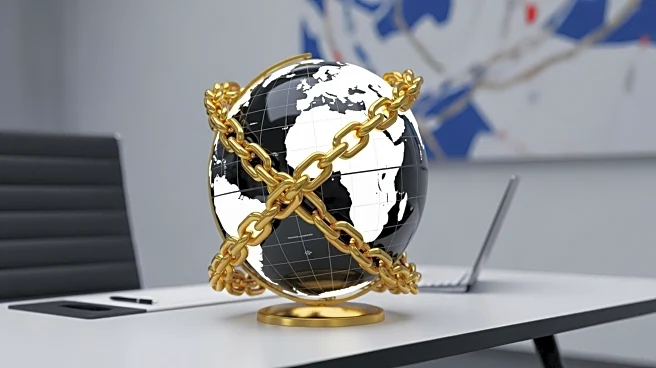What's Happening?
Jared Kushner, former chief adviser and son-in-law to President Trump, has returned to the political arena to assist in securing a ceasefire in Gaza. Despite having transitioned back to the private sector,
Kushner was called upon by President Trump to leverage his diplomatic experience and business relationships in the region. Kushner, alongside Steve Witkoff, Trump's Middle East envoy, is tasked with ensuring the ceasefire holds and implementing the second phase of the peace plan. Critics have raised concerns about Kushner's involvement due to his substantial business ties in the Middle East, including investments from Saudi Arabia and Qatar in his firm. These ties have led to accusations of ethical conflicts, though Kushner defends his involvement as beneficial due to his experience and relationships in the region.
Why It's Important?
Kushner's involvement in brokering peace in the Middle East is significant due to the potential impact on U.S. foreign policy and international relations. His business ties raise ethical questions about the intersection of diplomacy and personal financial interests, which could influence public perception and political discourse. The success or failure of the ceasefire could affect regional stability and U.S. diplomatic standing. Critics argue that Kushner's business interests may conflict with his diplomatic role, while supporters believe his experience and relationships are crucial for effective negotiation. The situation underscores the complexities of balancing personal interests with public service in international diplomacy.
What's Next?
The next steps involve monitoring the ceasefire's stability and implementing the second phase of the peace plan. The White House continues to support Kushner's role, emphasizing his importance in achieving the ceasefire. However, ongoing scrutiny of his business ties may lead to further ethical debates and political challenges. The administration must navigate these concerns while ensuring the peace plan progresses. Stakeholders, including political leaders and international observers, will likely continue to evaluate the situation's developments and Kushner's influence on U.S. foreign policy.
Beyond the Headlines
The ethical implications of Kushner's dual role in business and diplomacy highlight broader concerns about transparency and accountability in government. This situation may prompt discussions on the need for clearer guidelines regarding conflicts of interest for individuals with significant business ties. Additionally, Kushner's involvement reflects the intertwining of politics and business in international relations, particularly in regions where such overlaps are common. The long-term impact on U.S. diplomatic practices and ethical standards remains to be seen.









